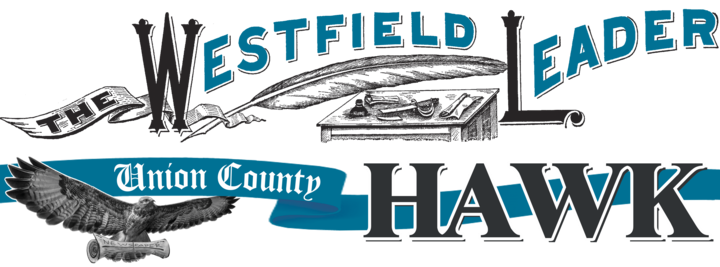AREA — In the two-plus years that have passed since New Jersey lawmakers first legalized recreational marijuana usage, dispensaries — and businesses that masquerade as licensed shops — have been cropping up across the state with increased regularity.
So far, state officials say, the move has been a profitable one.
According to information provided by the state, the burgeoning cannabis market brought in over $800,000 in revenue in 2023 and more than $500,000 in 2022.
“These are early signs of the potential of this market. Sales have grown steadily since Governor Murphy began the work to reform New Jersey’s cannabis market,” Jeff Brown, executive director at the New Jersey Cannabis Regulatory Commission (NJCRC), said via a press release last year. “If we consider medicinal cannabis sales from 2018 to 2021 — before recreational sales began — cannabis sales totals exceed $2 billion over the six-year span.”
Municipalities that opted in to allowing cannabis businesses to operate within their communities have seen an increase in revenue and financial benefits as well due to a state law that allows individual governing bodies to impose additional sales taxes on cannabis products.
The industry also has introduced hundreds of jobs over the course of the past two years and has provided additional ratables to municipalities struggling to fill vacant storefronts.
But while dispensaries, cultivators, wholesalers, retailers, distributors and delivery services (the six types of cannabis- related businesses that currently are allowed to operate in the state) are subject to a rigorous licensing process and frequent inspections by the NJCRC, other, unlicensed businesses — like smoke shops, gas stations and convenience stores — have managed to skirt the state’s oversight by selling products that toe the line of legality.
In 2018, Congress passed a bill that would allow retailers to legally sell hemp products like delta-8 and CBD without any type of license.According to information provided by the state, however, these unregulated products, which can induce the same type of psychotropic high as regular marijuana, can have dangerous side effects — especially in younger users.
In 2022, the Food and Drug Administration (FDA) issued a warning against delta-8 and other hemp-based derivatives, noting, “These products have not been evaluated or approved by the FDA for safe use in any context.” The agency reported that products containing delta-8 have been known to cause, among other side effects, hallucinations, vomiting, tremors, anxiety, dizziness, difficulty breathing, confusion and loss of consciousness.
The FDA also warns that a lack of oversight has led to mislabeled and misleading product packagings, which claim to offer unsupported medical advantages.
“Selling unapproved products with unsubstantiated therapeutic claims is not only a violation of federal law, but also can put consumers at risk, as these products have not been proven to be safe or effective,” the agency notes on its website. “This deceptive marketing of unproven treatments raises significant public health concerns because patients and other consumers may use them instead of approved therapies to treat serious and even fatal diseases.”
Many of these products — which have names like Galaxy Treats, Fun Cubes, and Gummies! — also have been disproportionately marketed to children.
In March of this year, a survey by the University of Southern California Keck School of Medicine revealed that more than 11 percent of highschool seniors had used delta-8 products within the last year.
In addition, because delta-8 products contain very little THC (the psychoactive component in regulated cannabis products), many manufacturers will attempt to heighten the effects of their products by adding potentially dangerous substances into the mix.
According to information provided by the FDA, “some manufacturers may use potentially unsafe household chemicals to make delta-8 THC through this chemical synthesis process. If consumed or inhaled, these chemicals can be extremely harmful.”
The situation has now caught the attention of local lawmakers, who are working to enact new legislation that would restrict the sale of delta-8 products and impose new regulations on retailers.
The proposed bill (S3235), which would amend the New Jersey Hemp Farming Act to set limits on how much THC can be sold in hemp products, also would mandate that all hemp-based products be sold in licensed dispensaries alongside other cannabis products. The bill advanced out of the Senate Judiciary Committee earlier this month with a vote of 6 to 2. Republican Senators Jon Bramnick and Kristen Corrado voted against the measure.
“I’m concerned to see the reportedly large number of unlicensed dispensaries and smoke shops attempting to evade state regulation,” Assemblywoman Michele Matsikoudis told The Westfield Leader and Union County HAWK earlier this month. “These health and safety guidelines play an important role in protecting consumers in a rapidly evolving industry. My office will seriously consider any and all proposals to ensure that these shops play by the rules and uphold their responsibility to keep residents as safe as possible.”
In Union County, nine municipalities — Elizabeth, Linden, Plainfield, Rahway, Roselle, Roselle Park, Scotch Plains, Springfield and Union Township — all decided to opt into permitting cannabis industries in various shapes and forms to operate within their boundaries. Any smoke shop operating out of another local municipality is likely not subject to state-level oversight. For a complete list of statelicensed dispensaries or to learn more about responsible cannabis usage, visit the New Jersey Cannabis Regulatory Commission at nj.gov/cannabis.



